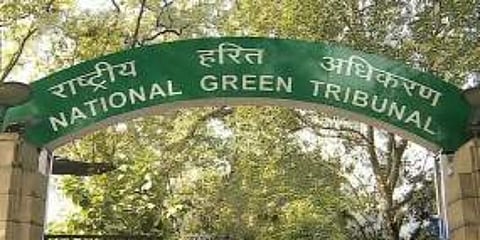

BENGALURU: Similar to the controversial steel flyover that the Karnataka government shelved after public uproar and intervention by the National Green Tribunal, the fate of the tunnel roads will be sealed if good sense doesn’t prevail over the Congress-led state government, civic activists and mobility experts said.
They termed the project ‘unconstitutional’ as the cabinet granted administrative approval to the 18.5 km tunnel road from Hebbal to Silk Board, costing Rs 12,690 crore, without consulting constitutional bodies like the Bangalore Metropolitan Planning Committee (MPC) and Bangalore Metropolitan Land Transport Authority (BMLTA) that is tasked to plan the city.
Founder-member of the Bengaluru Praja Vedike NS Mukunda, who played a crucial role in taking the steel flyover project to the court and getting it shelved, termed the project ‘unconstitutional’ and warned that it may face the same fate as the steel flyover.
“There are certain principles laid down by the Constitution of India that have to be followed while planning projects and executing them. One cannot wake up from a dream with a fancy idea and go ahead to implement it,” said Mukunda. “Bruhat Bengaluru Mahanagara Palike (BBMP) doesn’t have an elected council and mayor. The Revised Master Plan 2031 has not been approved as there is no BBMP Council. The 74th Constitutional Amendment (which provides constitutional status to the Urban Local Bodies) envisages the Bangalore Metropolitan Planning Committee (MPC) as a constitutional body for planning Bengaluru Metropolitan Area, and big-ticket projects like the tunnel road projects must be placed before MPC for clearance.”
But the state is deciding on a mega infrastructure project for Bengaluru in the absence of an elected BBMP Council. He said that all public projects must be kept for public consultations, recording the opinions and, if needed, reworked. “The tunnel project is no exception to this. The state cabinet giving approval for the project is unconstitutional,” he said, adding that projecting this project as the “panacea for all traffic problems in the city is a myth, and has no scientific backing”.
Prof Ashish Verma, mobility expert and convenor of Sustainable Transportation Lab, Indian Institute of Science (IISc), said if good sense does not prevail over custodians of Bengaluru, then courts may intervene. “There is not a single angle in which the government can justify the tunnel road project. It will only increase the number of private vehicles on the road. It will increase fossil fuel consumption and tailpipe emissions. A feasibility study should be done by comparing different modes of transport,” he said.
An ‘Environment Impact Assessment’ is mandatory for road infrastructure projects. An underground metro can carry 40 times more people than a tunnel road with the same amount of investment, said Verma, who suggested investing heavily in public transport infrastructure is the key to solving traffic congestion in the city.
The state government’s move to build a tunnel road to reduce traffic in Bengaluru is short-sighted, said Vinay Sreenivasa, advocate and member of Bengaluru Bus Prayanikara Vedike. He pointed out that traffic congestion in the city has increased despite an increase in the number of flyovers, signal-free corridors and underpasses. This is because private vehicles have increased from 11.44 kah in 2015 to 23.92 lakh in March 2024, he pointed out. “Also, the tunnel from Hebbal to Silk Board is planned with five exits. Cars exiting the tunnel have to hit a signal somewhere, so there will be a pile-up eventually. The tunnel may just shift the bottleneck, but will not resolve it,” he said, stressing that traffic will reduce when people move from cars to public transport.
Metro takes time to add capacity, but it’s a faster solution. Unfortunately, while private vehicles doubled in the past decade the number of buses on the roads has come down, he said, batting for more buses and dedicated bus lanes. Tunnel roads will be counter-productive, leading to loss of trees and posing a potential flood risk, he said. “There is no reason why Bengaluru needs a tunnel. Our cabinet needs foresight, it should discard its tunnel vision.”